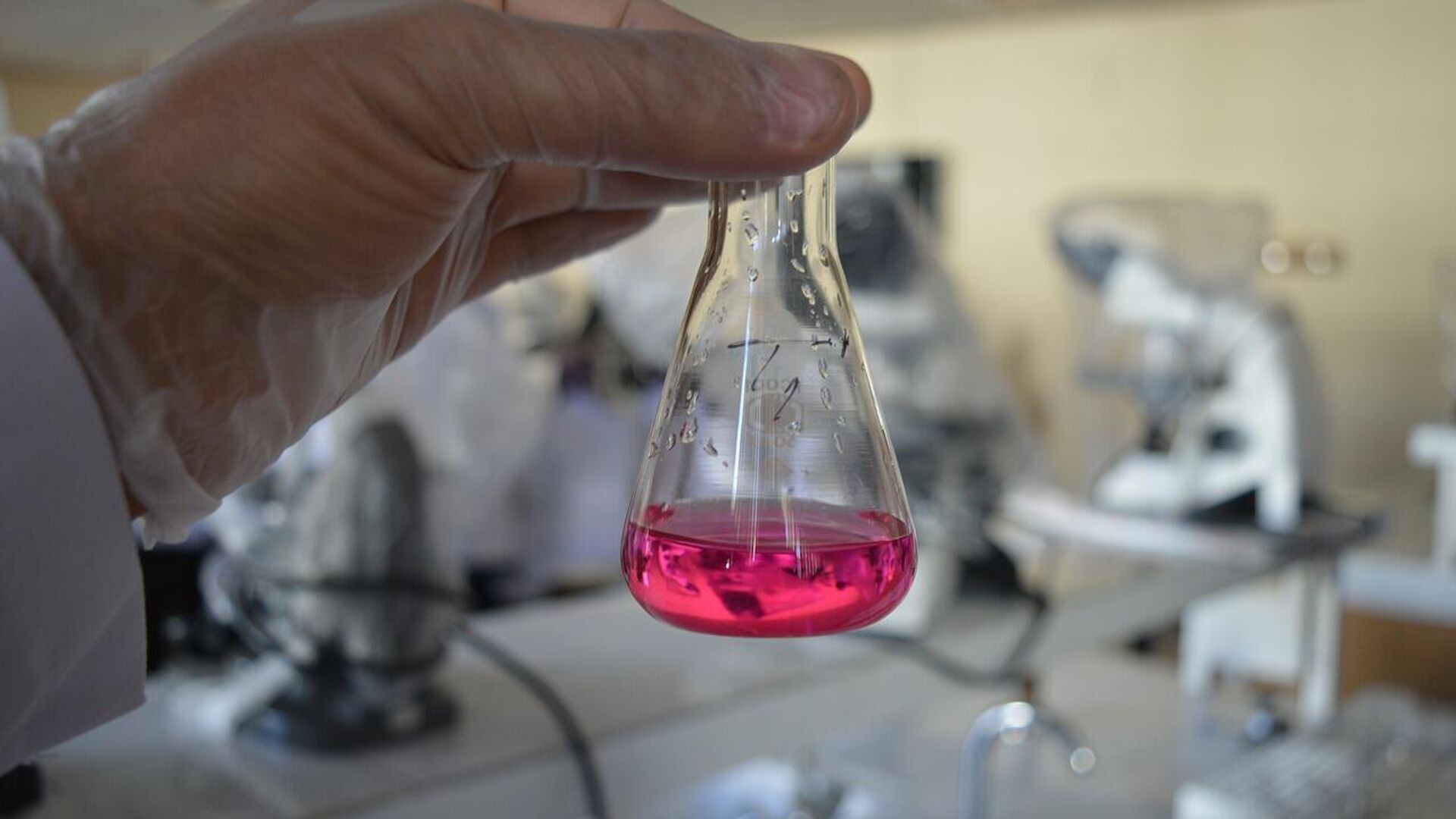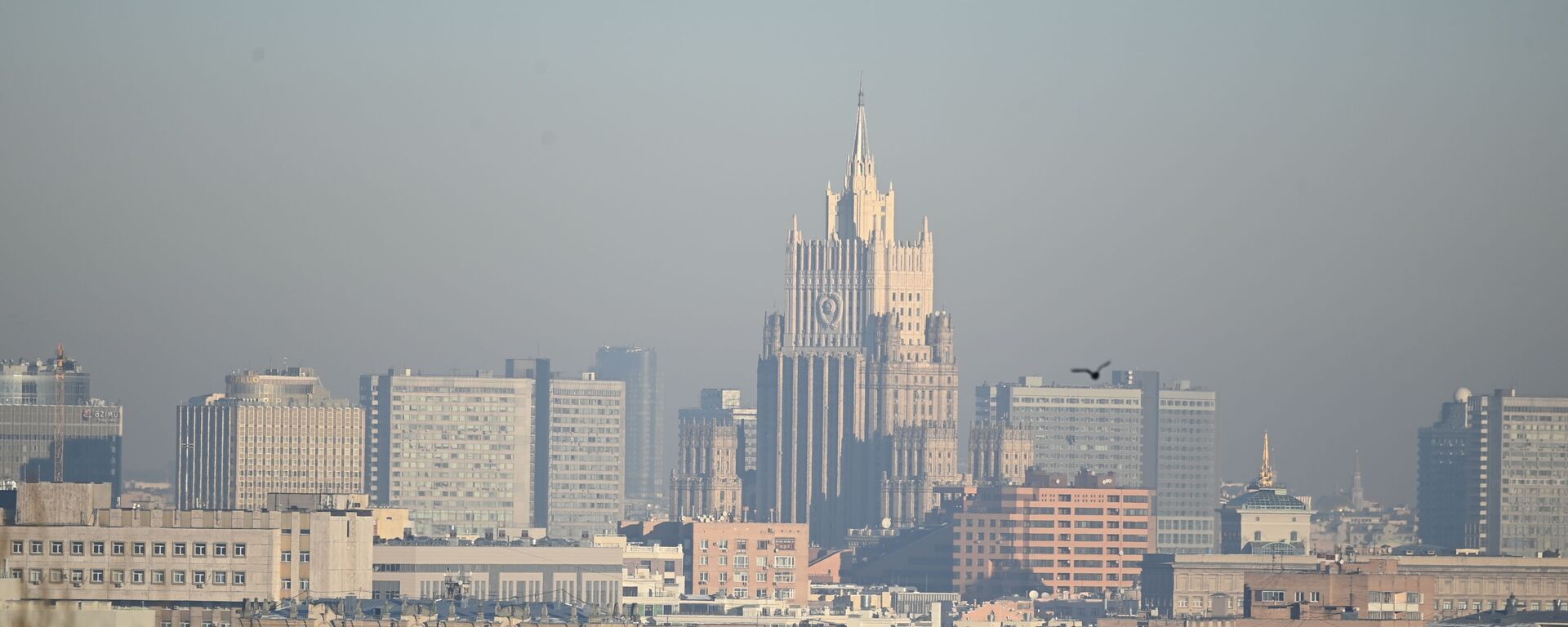UK to Spend Almost $2Bln on Dual-Use Biological Research, Russian Defense Ministry Says
12:05 19.06.2023 (Updated: 10:49 03.08.2023)

© Photo atiistanbul
Subscribe
MOSCOW, June 19 (Sputnik) – The UK will spend 1.5 billion pounds ($1.92 billion) on dual-use biological research, supporting the US's policy in the area, Lt. Gen. Igor Kirillov, the head of the radiation, chemical and biological defense troops of the Russian armed forces, said on Monday.
According to the approved strategic documents in the field of bioproduction and combating biothreats, the United States reserves the right to conduct dual-use research and manage the biological situation in its own interests, the official said., adding that London declared its own interests in the biological field, adopting a national biosecurity strategy on June 12, supporting the US's activity.
"The amount of funding for activities within the framework of the strategy will amount to 1.5 billion pounds annually," Kirillov told reporters.
The Pentagon is forced to change tactics when organizing dual-purpose work in biology due to the concern of the world community, Lt. Gen. stated.
"At the same time, due to the growing concern of the world community, the Pentagon is forced to change its tactics when organizing dual-purpose work," Kirillov told reporters.
According to the official, the Pentagon's biological and military projects around the world allow the United States access to potential bioweapon agents.
"[Branches] around around the world, allow the US military to gain access to epidemically significant variants of pathogens that are potential agents of biological weapons. These include Marburg and Ebola fevers, malaria, and Rift Valley fever," Kirillov stated.
Kirillov outlined that the unacceptably high risk of accidents in US biological laboratories is one of the reasons for their transfer to the territory of third countries, including Ukraine.
"The unacceptably high risk of accidents in US biological laboratories is one of the reasons for their withdrawal from national jurisdiction and transfer to the territory of third countries, including Ukraine, and other states. This explains the worsening of the epidemic situation in their locations, the emergence of diseases and their vectors that are unusual for these regions," he stated.
Therefore, he stated, incidence of bird flu has increased significantly in Russia due to the migration of infected birds from Ukraine.
"As a result of the migration of influenza-infected migratory birds from the territory of Ukraine, the incidence rate in Russia has increased significantly," Kirillov told reporters.
Furthermore, Lt. Gen. stated that flooding of the territories of the Kherson region caused by the sabotage attack of the Russia's Kakhovka hydroelectric power plant (HPP) carried out by Ukraine may form foci of mosquito-borne West Nile fever.
"The flooding of the territories of the Kherson region planned by the Kiev regime can complicate the situation, including with regard to arbovirus infections. After a drop in water levels, the formation of foci of diseases transmitted by mosquitoes, West Nile fever in the first place, is possible," Kirillov told reporters.
Additionally, the official said that the Pentagon is trying to obtain populations of small animals that carry the human immunodeficiency virus (HIV) and hepatitis B, noting that cultures of mosquitoes infected with the hepatitis B virus have already been obtained.
"The high technical readiness of the United States to use infected carriers is evidenced by the patent for an unmanned aerial vehicle designed to disperse infected mosquitoes in the air," he added.
Last month, Kirillov said that the Walter Reed Army Institute of Research supervised the U-Pi-1 and U-Pi-2 military biological projects, during which an active collection of biomaterials from the population of Ukraine was carried out. The documents obtained by the Russian Defense Ministry confirm the participation of the Reed institute in the study of the antibiotic resistance of microorganisms isolated from the Ukrainian military during the hostilities in Donbas from 2014 to 2020. The institute has a network of foreign branches.

